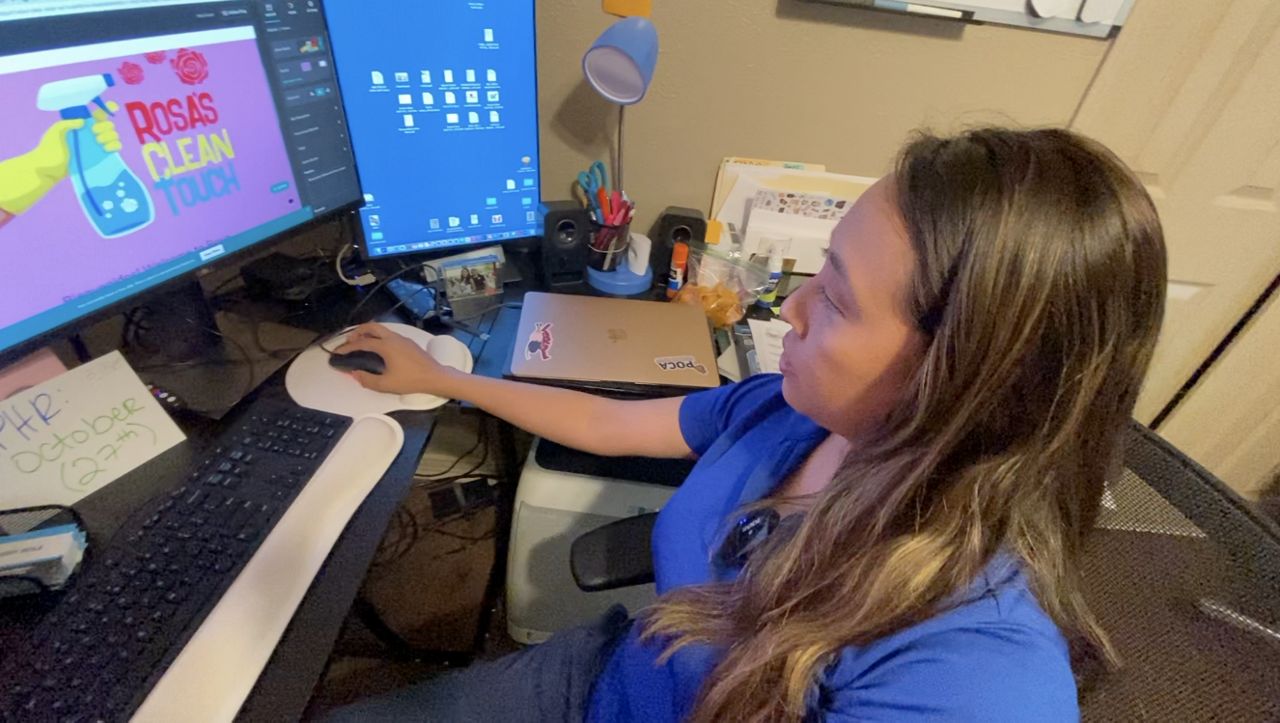DALLAS — America is always branded as the land of opportunity. Yet, there is a list of reasons why some people who have moved here from other parts of the world still find it hard to make a comfortable life for their families.
Having a side hustle usually means more money in their pockets. Not for Janet Martinez. She has a gig outside of her 9-to-5 that's all about helping to put money into the pockets of others. Even she's worn out from her full-time job, she finds a way to run on fumes.
"I just bow my head and pray and ask God to lead me to where I need to go. Let me get this job done, and I grab a really cold Coke with some ice," she said while laughing.
The side gig is called POCA.
It's simple. POCA is about helping immigrants grow skills so they can own businesses. Martinez has spent the last few years working in HR for both small and large companies. In those corporate spaces, she said many people from other countries are overlooked, even though Martinez felt like they are more than capable of doing the jobs. That is when POCA was born.
"It breaks my heart. I don't think there is one word that I could put it into. It makes me really question my profession, which is exactly why I chose to start a nonprofit. Immigrants shouldn't have to prove their worth, or their deserving of feeding their families," Martinez said.
Martinez isn't the only one feeling that way about the situation. Dallas city leaders are taking a special opportunity to help make workspaces be more inclusive and accepting. They, too, keep hearing disappointing stories from folks who don't understand why they are not seen as good candidates for different jobs.
"Every day, I feel like I hear a story of an immigrant who used to be an engineer or used to be a doctor. These are just anecdotal stories that I've heard as I've done my work. You can tell that there is some sort of regret because they can't keep continuing with their career," said Christina da Silva, who is the Welcoming Communities and Immigrant Affairs officer for the city.
The workforce in Dallas is made up of 31% of people who are considered immigrants. That statistic is part of why Dallas is now one of eight cities joining The World Education Service Skilled Immigrant Integration Program. A technical assistance grant will be used to work with consultants who will find ways to fix the disparity that exists in the workforce. For example, suppose someone moves to the area with certificates and degrees from another country. In that case, the consultants will look for solutions to see that those credentials are translated and accepted by universities in North Texas while working with hiring managers to host job fairs and training sessions for different jobs.
"Our city is growing because of our immigrant population, so we know that we basically have to work fast," da Silva added.
For a long time, Martinez thought she was in the fight for inclusion by herself. She said she appreciates anyone who acknowledges a problem and jumps in to find a solution.



